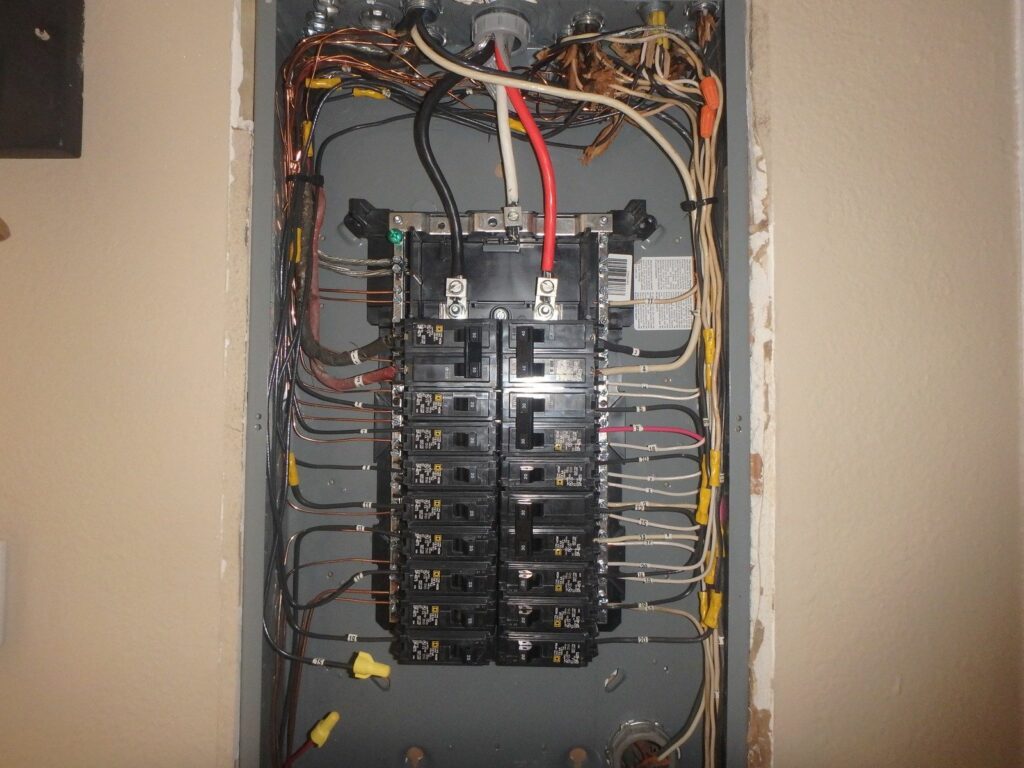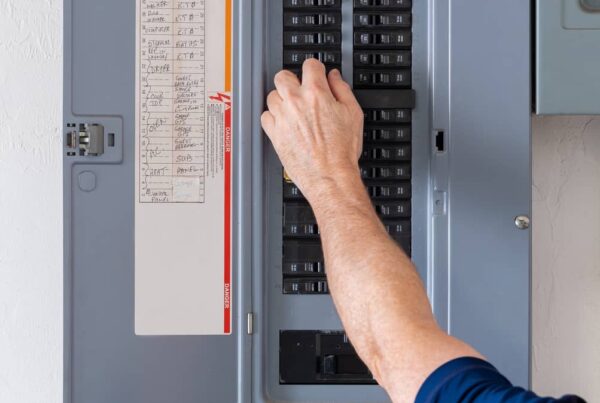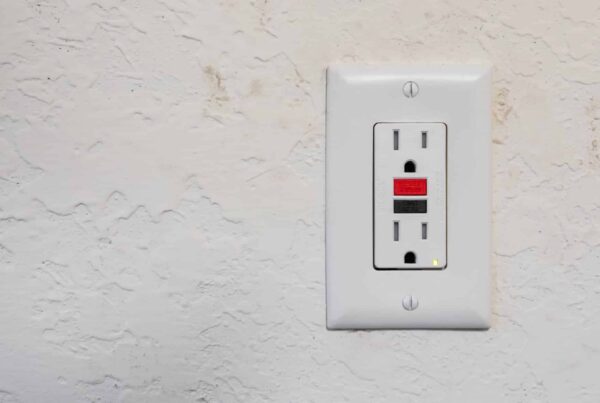
Every home should have an electrical grounding system, but most homeowners do not even know what that is.
Here’s a quick definition: Electrical grounding is a backup pathway for electrical current to flow in case there is a fault.
For example, if a wire connection became loose, or a wire burnt through, the electricity would want to complete the circuit. Without an electrical grounding system, the electricity could flow through your home in an unsafe manner. The process of grounding prevents chaotic electrical flow after a fault by flowing the current back to the ground or to the source of electricity.
How Your Home’s Electrical System Works
For background, it’s important to understand how your home’s electrical system functions. Let’s break it down in simple terms…
Your electricity comes from your local power/utility company and to your home. At your home, you have a hot wire (usually red or black in color) and a neutral wire (usually white in color). All of these wires are tied into your electrical panel which controls the electricity.
The hot wire carries electrical current to your electrical panel, then to your rooms/appliances, and finally, to your outlets/fixtures. The neutral wire completes the circuit by bringing all of your electrical currents back to the source of the circuit. In this instance, it would be your electrical panel, and then to the power company.

How Grounding Is Apart Of Your Home’s Electrical System
The grounding system is a set of wires that run in parallel to your circuits. It’s typically a bare copper wire signaled with green colors at connection points.
The grounding system runs everywhere your regular system is connected to so if, at any point, your wiring became faulty, the grounding system could pick up the current and carry it safely back to your electrical panel. However, grounds and neutrals are only connected at the last point of disconnect (the main electrical panel). This is so grounding never picks up the natural current flow and carries some of the load. If grounding wires picked up the natural current, many systems like your circuit breakers would not function properly. Not to mention, your system could shock you.
Finally, at your main electrical panel, all grounding is tied to your neutral wires and into a ground rod. A ground rod is a singular metal rod that is embedded in the Earth. It’s typically located outside near your electrical meter. That rod’s job is to dissipate electrical energy through the Earth if there were a fault.

What Is Grounded In Your Home?
With today’s electrical building standards, almost every major piece of metal that is built into your home is grounded. This can include rebar in your concrete, electrical panel boxes, copper plumbing, appliances, fixtures, outlets, screen enclosures, etc.
With a swimming pool, there is more that is required to be grounded.
Additionally, major appliances such as vacuums, refrigerators, ovens, and power tools have built-in grounding. These are your appliances that require three-prongs to plug in.
Before the ’70s, homes were built with only two-prong outlets, however, today, every new home has three-prong outlets for exactly this. If you have knob & tube wiring, for example, your home may not be grounded.
What Home Inspectors Look For
During our home inspections, we inspect the entire electrical system including the grounding system.
We will inspect a majority of your outlets to ensure they are properly grounded, as well as, ensure your grounding is properly set up with a ground rod and connected to the neutral wires at the last point of disconnect only. Any part of the home without proper grounding would be noted.
In Florida specifically, a four-point inspection may signal to your insurance company that your home needs to be grounded if it is not already. However, four-point inspections are not always required.
Final Thoughts
Electrical grounding in your home plays an important role in controlling excess electricity. Ensuring your home’s components are all properly grounded can save lives and prevent fires.
Have a question? Comment below!



